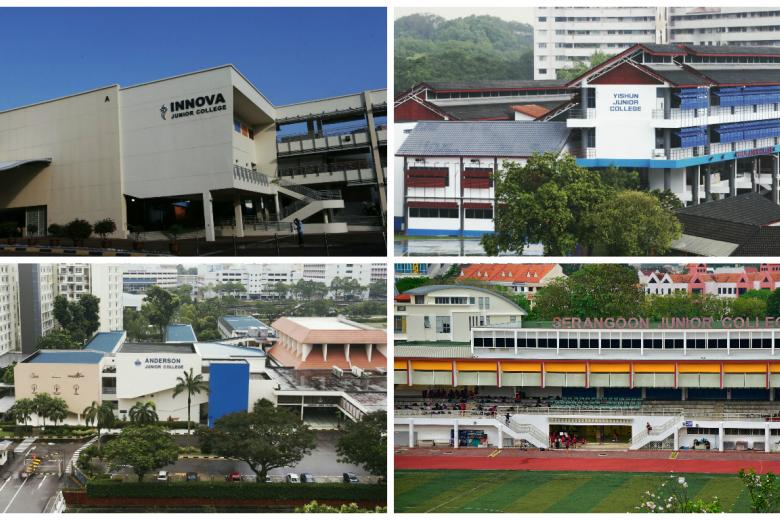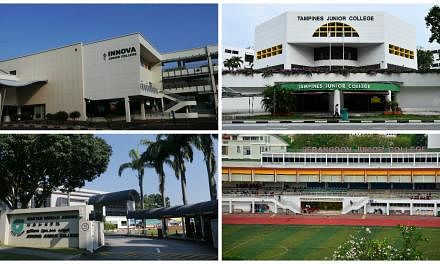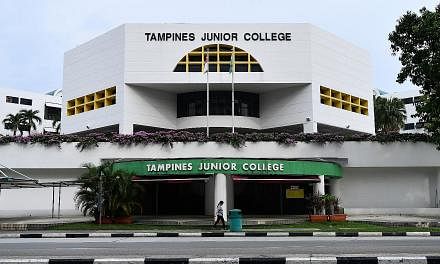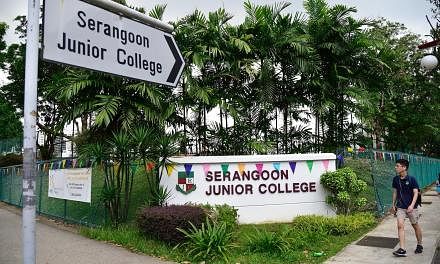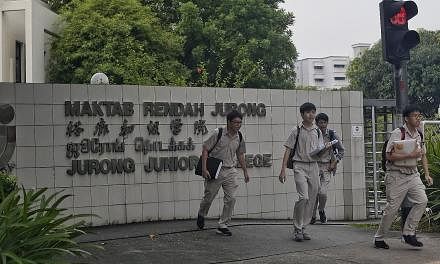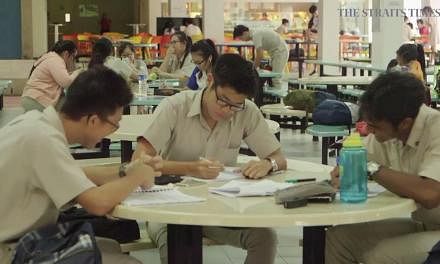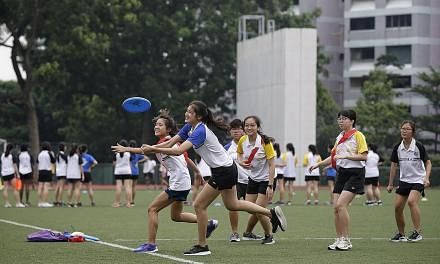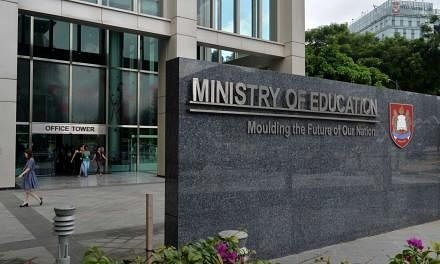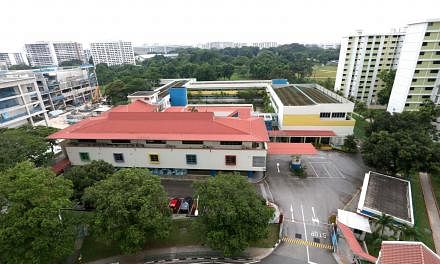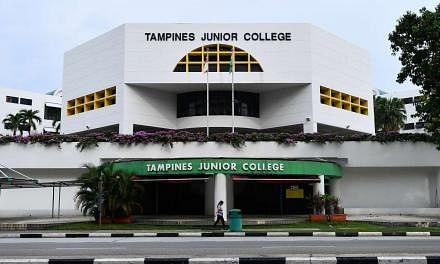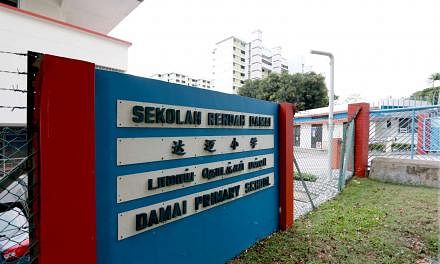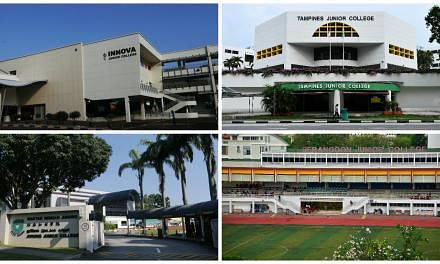SINGAPORE - In the latest response to the shrinking number of students, 14 pairs of schools will be merged in 2019 - and for the first time this includes junior colleges.
Serangoon, Tampines, Innova and Jurong JCs will move into Anderson, Meridian, Yishun and Pioneer respectively, cutting the number of JCs from 23 to 19. Seven pairs of primary schools and three pairs of secondary schools will also be merged in what is the biggest merger exercise in two decades.
The Education Ministry (MOE) explained that it needed to merge schools due to Singapore's declining birth rate. It said in the case of a few JCs involved in this merger exercise, the intakes could fall to as low as 200 or 300 over the next few years.
In the late-eighties to early-nineties, there were around 50,000 births each year. But between 1993 and 2002, this fell about 20 per cent from about 49,000 to 39,000. JC intake is now expected to drop by a fifth, going from 16,000 in 2010 to 12,800 in 2019.

Said Ms Liew Wei Li, director of schools at MOE: "We have thought through the various options. This is a very difficult decision. We have agonised over it. We find that we have little choice but to merge the JCs, in order that we can provide that kind of opportunities and range of choices for the students to come."
But the ministry gave the assurance that despite the mergers, there will be space for every student who qualifies for JC. MOE also stressed that no teachers will lose their jobs. Those affected will join the merged schools with their bigger cohort of students, or be redeployed to other schools or the ministry headquarters.
To minimise the impact on students, the four junior colleges which will fold into others in 2019 will not take in a fresh cohort of JC1 students next year (2018). This means students will not have to move in 2019, while the current cohort will complete their A-level studies at the same school.
Mindful of the sentiments of the alumni, MOE said the history and heritage of schools which will move will be passed down to future cohorts, and marked at a dedicated heritage space at the merged schools. The names of the merged schools will be announced at a later date.
MOE explained that the schools slated for merger were picked based on various factors on top of falling enrolment. For example, MOE also took into account their location.
In the case of JCs it was important to maintain a good spread of such schools across the country. Hence two junior colleges not offering the integrated programme were selected from each region - west, north, north-east and east - to form a merger pair. Accessibility and quality of infrastructure were also considered.


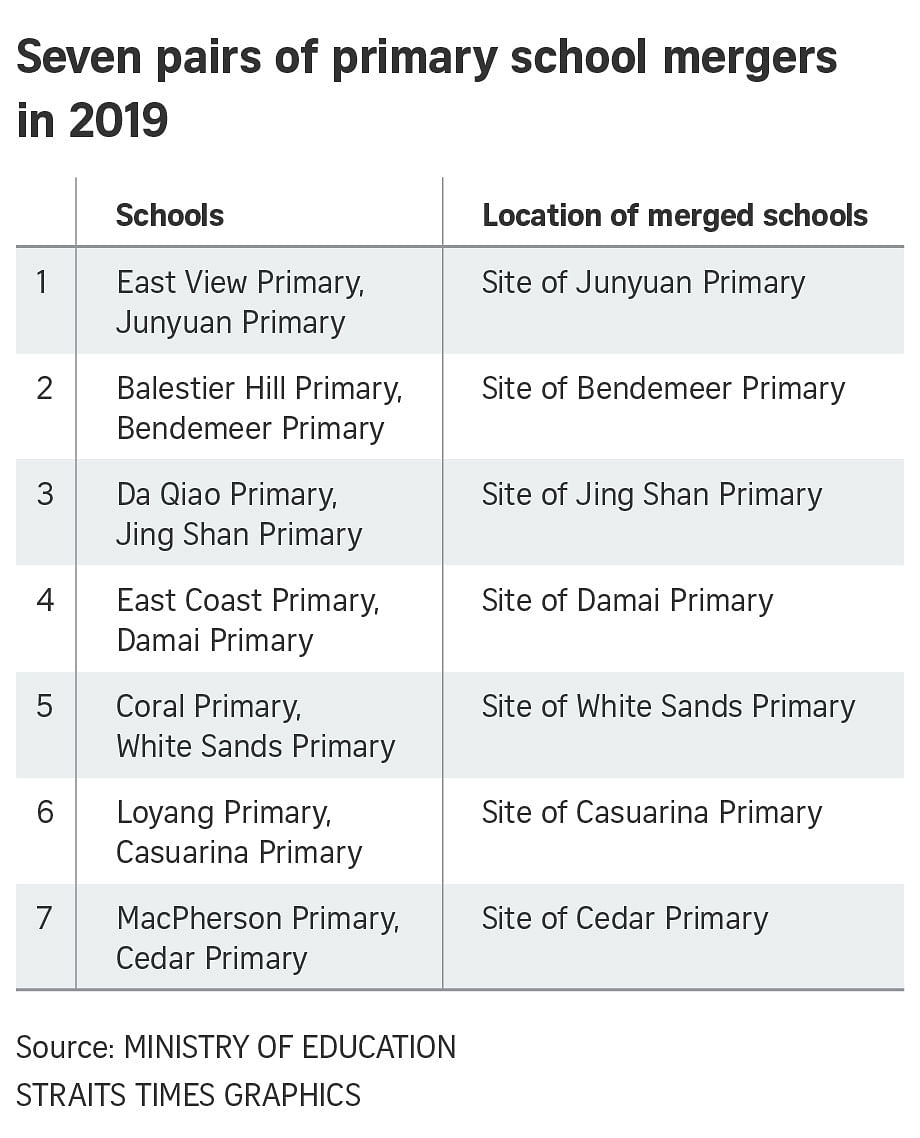
MOE said that unless action was taken, falling cohort numbers might make it unviable for some schools to offer a broader range of educational programmes and co-curricular activities to match varied interests.
Siglap Secondary, which was merged with Coral this year, for instance, was unable to continue with its Red Cross unit and badminton CCA due to its decreasing cohort size. Fewer students also mean a less vibrant learning environment.
The mergers will help the school achieve a "critical mass", and increase ways for students to collaborate, and expand their CCA and learning options.
Changes in population demographics across different estates also result in an uneven distribution of students across primary and secondary schools, MOE pointed out.

As Primary 1 demand in mature estates fall, schools have to be merged. But in newer estates, new schools may be needed.
Last year, three new primary schools were opened in Punggol. And to meet the high demand for school places in Sengkang, Fern Green Primary will open next year.
Last year, MOE also announced the merger of 22 secondary schools.
Jurong JC alumni Kenneth Sng, now 24 and a Public Service Commission scholarship holder, told The Straits Times: "Frankly, I am sad to hear that my alma mater will be merged with another school."
He made the news last year when delivering the opening remarks as the Student Union president of Washington University in St Louis, at a debate featuring then US presidential hopefuls Donald Trump and Hillary Clinton. "I have had a lot of fond memories of my JC days and it will be unfortunate to not have an alma mater to go back to. But I understand MOE's rationale and I hope the decades-long heritage will be preserved in some form in the new junior college."
